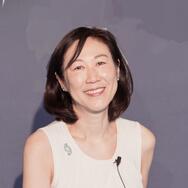Empowering Girls to Think Globally
Empowering Girls to Think Globally
In 1908, Kimi Takagi established Takagi Girls’ High School, now renamed Yokohama Eiri Girls’ High School.

In 1908, Kimi Takagi established Takagi Girls’ High School, now renamed Yokohama Eiri Girls’ High School. Akiko Takagi, a great-granddaughter of Kimi Takagi, is Chair of the Board of the school. Though COVID-19 made it impossible for students to travel on Eiri’s annual overseas trip this year, Takagi never used the pandemic as a reason for students to stop learning about global issues. In fact, last month, Yokohama Eiri Girls’ High School—in collaboration with SPICE—launched Stanford e-Eiri, an online course that introduces global topics that focus on the UN Sustainable Development Goals.
Two of the UN Sustainable Development Goals that are the foci of the course are gender equality and reducing inequality. Stanford e-Eiri gives special focus to the role of girls and women in addressing these goals, and supports Eiri’s mission to cultivate female leaders who can innovate and contribute to the global society. A unique feature of the course is that students are being asked to critically consider the SDGs in English.
The Instructor of Stanford e-Eiri is Dr. Mariko Yoshihara Yang, who was formally educated in both Japan and the United States (Ph.D., Stanford University). As a curriculum specialist, Yang is utilizing design thinking and inquiry-based pedagogies as the foundation of the course. Importantly, Yang is a social entrepreneur who believes that education will empower the next generation of female leaders by enabling innovative and participatory learning. Takagi noted, “Dr. Yang’s perspective and insights as a woman who has lived extensively in Japan and the United States and also with formal education in both countries are invaluable for the empowerment of our girls at Yokohama Eiri Girls’ High School. Dr. Yang also provides students an ideal blend of structure and flexibility in Stanford e-Eiri so that they can exercise their creativity while maximizing their critical thinking skills.”
Yang has an impressive background in the area of the empowerment of girls and women. In 2016, she co-organized the Stanford–Silicon Valley U.S.–Japan Dialogue: Womenomics, the Workplace, and Women, and that same year, she co-founded SKY Labo, a Japanese non-profit organization to empower girls with “STEM + arts/humanities” (STEAM) education. Yang has also co-authored a book on STEAM education and Design Thinking, 世界を変えるSTEAM人材―シリコンバレー「デザイン思考」の核心 (Asahi Shimbun Publications, 2019).
Takagi is an ideal role model for the Stanford e-Eiri students. She was formally educated in Japan, the United States, and the UK (MBA, London Business School) and has also worked for multinational corporations like L’Oréal. Her work at L’Oréal particularly inspired her to think about the empowerment of women and career development. Her vision and leadership made Stanford e-Eiri a reality.
Takagi and Yang hope that Stanford e-Eiri will open doors for the students as their promising academic futures unfold. During this challenging year, I have tried to focus on positive outcomes, and the launch of Stanford e-Eiri is definitely one of them. Also, the fact that Kimi Takagi—over 100 years ago—guided the girls at Takagi Girls’ High School through the 1918 pandemic with the same goals/principles that today are key SDGs—that is, good health and well-being; quality education; and gender equality—is truly an inspiration. It is both heartwarming and reassuring to know that in 2020, Takagi and Yang are following in her footsteps.

